Let’s talk about keeping your money safe while gambling online. You know how tricky it can be to pick the right payment method, right? Well, think of it like choosing a safe place to keep your wallet – you want something reliable and secure, not just the first option you stumble across.
Here’s the thing about online gambling payments: while there are tons of options out there, from good old credit cards to fancy new cryptocurrencies, not every method is created equal. Some payment providers make big promises about security, but we need to look beyond the flashy marketing.
Picture this: you’re about to deposit money into your gambling account. Just like you wouldn’t hand your credit card to a stranger on the street, you need to be smart about where your financial details are going online. Each payment method comes with its own perks and quirks, kind of like different locks on your front door. Some are super solid, while others might have a few weak spots.
The great news is that finding a secure payment method isn’t rocket science. It’s more like putting together a puzzle where all the pieces need to fit just right. Sure, it takes a bit of homework to understand what makes each option tick, but trust me, it’s worth the effort. After all, nobody wants their fun gambling session to turn into a headache because they picked the wrong way to pay.
So, ready to figure out what makes a payment method truly secure? Let’s get into the nitty-gritty and help you make a choice that’ll keep your money as safe as houses.
Understanding Online Payment Security Basics
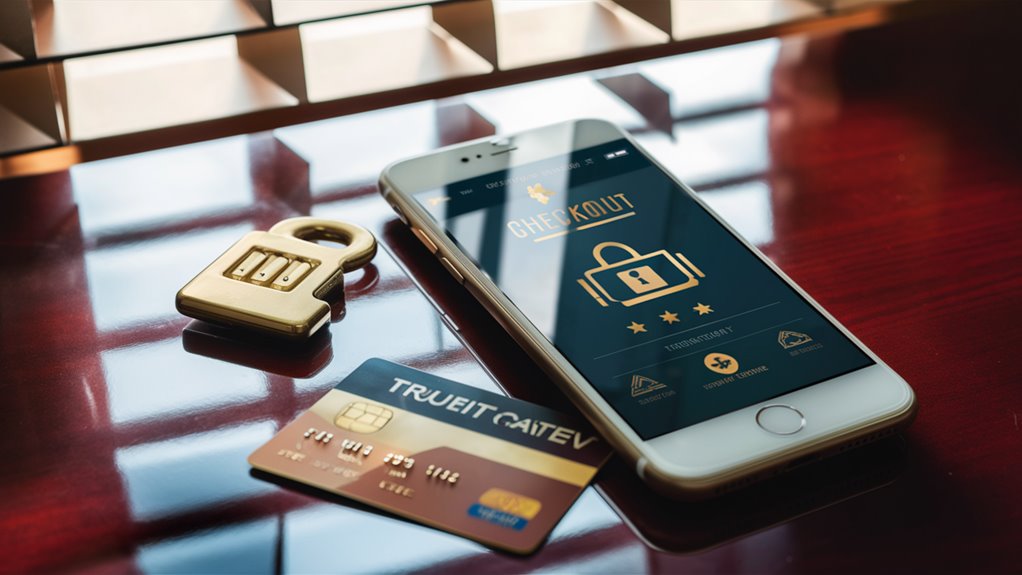
Let’s talk about keeping your money safe when making online payments. You know how nerve-wracking it can be to enter your card details on a website, right? Well, there are some simple things you can look out for to make sure you’re not taking any unnecessary risks.
First up, keep an eye out for that little padlock symbol in your browser’s address bar. It might seem small, but it’s actually pretty important – it tells you the site is using SSL encryption. Think of it like a secret code that scrambles your financial information so hackers can’t make sense of it, even if they manage to intercept it.
Now, you’ll want to use sites that go the extra mile with security. The best ones use something called two-factor authentication, or 2FA for short. It’s kind of like having a double lock on your front door. You’ll need your password (that’s the first lock) plus something else, usually a code sent to your phone (that’s the second lock). Pretty smart, right?
Before you pull out your wallet, take a quick look at the site’s credentials. Are they licensed by well-known gaming authorities? Do they’ve those trust badges from security companies like Norton or McAfee?
It’s also worth checking how they handle your money. Some sites process payments themselves, while others use trusted payment companies to do the heavy lifting. Either way, make sure they follow something called PCI DSS standards – it’s basically the gold standard for keeping your payment details safe and sound.
Credit Card Safety Features
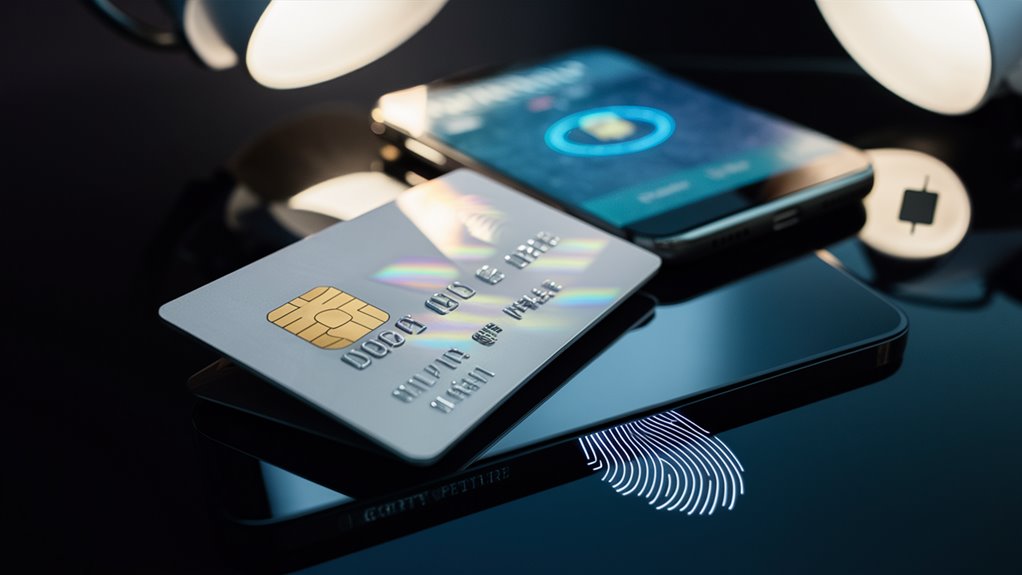
Let’s talk about what makes credit cards one of your safest bets when it comes to online payments. You know how we’re all a bit worried about security these days? Well, credit cards actually come with some pretty impressive safety features built right in.
Think of your credit card as a fortress with multiple layers of protection. First up, there’s this amazing encryption technology working behind the scenes, kind of like an invisible shield around your transactions.
Plus, credit card companies have these super-smart systems watching your account 24/7, sort of like a personal security guard who notices anything fishy right away.
Ever wondered about that little three-digit code on the back of your card? That’s your CVV, and it’s actually pretty clever. It proves you’ve got the physical card in your hands when shopping online, which helps keep the bad guys at bay.
And here’s something really reassuring: if someone does manage to make unauthorized purchases, you’re typically not on the hook for them thanks to zero-liability protection.
Want to feel even more secure? You can easily set up alerts on your phone to track spending, or even create spending limits. Some card companies now offer this cool feature called virtual card numbers, perfect for online shopping since they keep your real card details under wraps.
Just remember to stick to websites that show that little padlock symbol and use extra security steps like Verified by Visa or Mastercard SecureCode. It’s like having a bouncer checking IDs at the door of a club, making sure only the right transactions get through.
And if something does go wrong? No worries. You’ve got chargeback rights in your back pocket, meaning you can dispute any sketchy charges and often get your money back. Pretty neat, right?
E-Wallet Protection Mechanisms
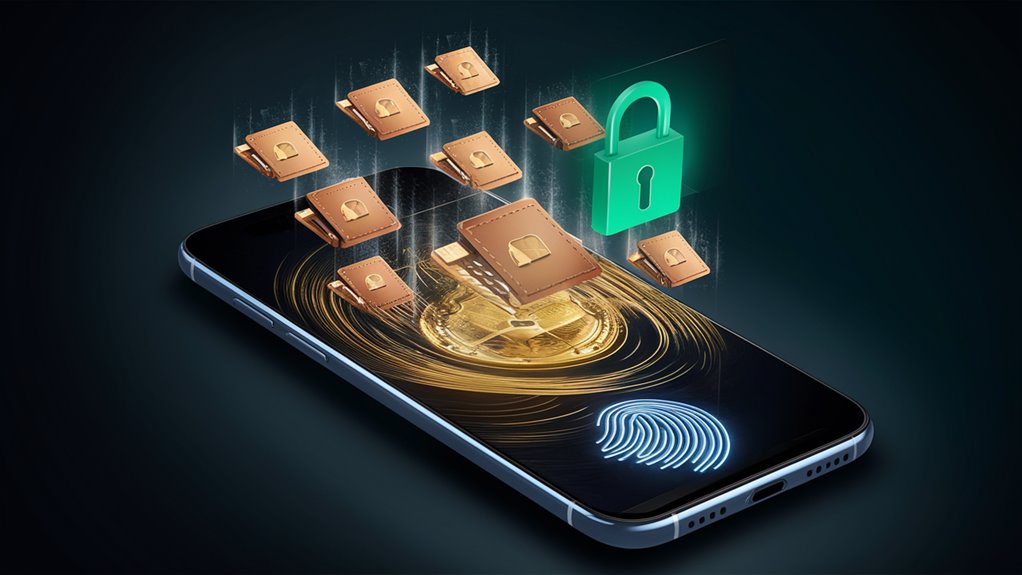
Let’s talk about what makes e-wallets such a secure choice for your online transactions. You know how we’re all worried about keeping our money safe online, right? Well, digital wallets like PayPal, Skrill, and Neteller have got your back with some pretty impressive security features.
Think of an e-wallet as your personal security guard that stands between your bank account and the gambling sites you use. The cool thing is, you never have to share your actual banking details with any gaming platform. Instead, your e-wallet handles all that sensitive information behind the scenes.
These digital payment tools come packed with some serious protection. First up, there’s end-to-end encryption, which basically wraps your financial data in an unbreakable code. Then you’ve got two-factor authentication, which is like having a double-lock on your front door. Before any money moves, you’ll need to prove it’s really you through a second device or method.
What’s really neat is how these e-wallets keep an eye on things 24/7. They’re constantly scanning for anything fishy, and if something looks off, they’ll let you know right away. You’ll get instant alerts for every transaction, so if someone tries to use your account without permission, you’ll spot it immediately.
Worried something might go wrong? Most e-wallets offer buyer protection programs to help you get your money back if there’s a problem. You can also take extra steps to boost your security, like setting spending limits or using strong passwords.
And if you ever feel uneasy about your account, you can freeze it instantly through your mobile app. Pretty handy, right?
Cryptocurrency Security Benefits
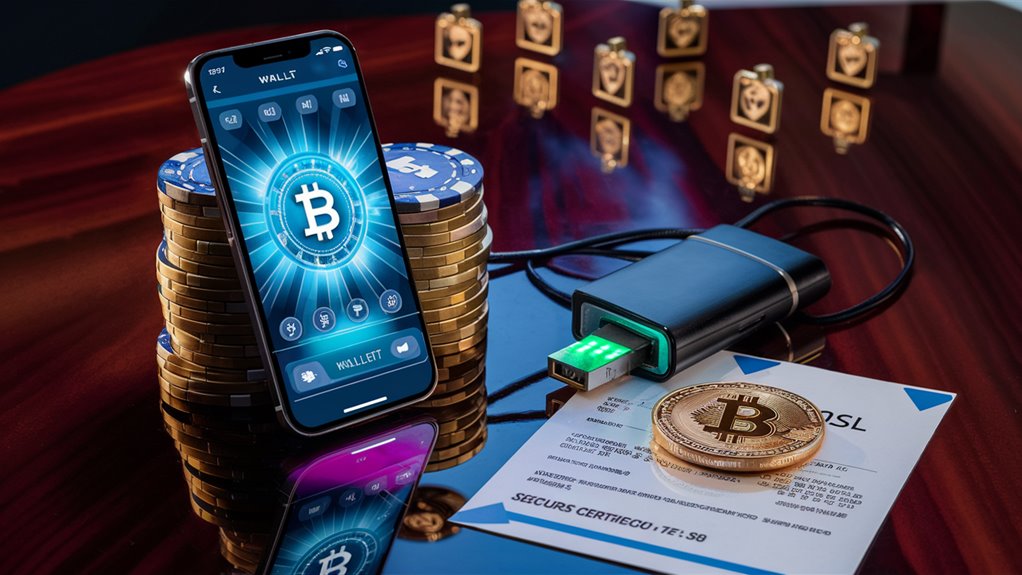
Let’s dive into the fascinating world of cryptocurrency security, especially when it comes to online transactions. You might be wondering what makes digital currencies like Bitcoin and Ethereum so special for keeping your money safe. Well, it all comes down to something called blockchain technology, which is basically like a super-secure digital ledger that can’t be tampered with.
Think of blockchain like a virtual vault that records every single transaction. The cool thing is, you don’t need to share your personal banking details when using crypto. Instead, you just use your wallet address and private key, kind of like having a secret password that only you know. This means you can keep your identity under wraps while still enjoying your online activities.
You know how frustrating it can be when banks charge those pesky processing fees? With crypto transactions, you can skip the middleman entirely. Plus, once you make a transaction, it’s set in stone. No more worrying about chargebacks or someone trying to reverse payments after the fact. The system even lets you track your money in real-time, just by checking the public ledger.
Here’s something really neat: many cryptocurrencies come with what’s called multi-signature functionality. It’s like having multiple locks on a safe, where you need more than one person to approve big transactions.
As long as you keep your digital wallet secure and follow some basic safety practices, cryptocurrency can really step up your online transaction security game. Pretty amazing how far technology has come, right?
Bank Transfer Authentication Methods
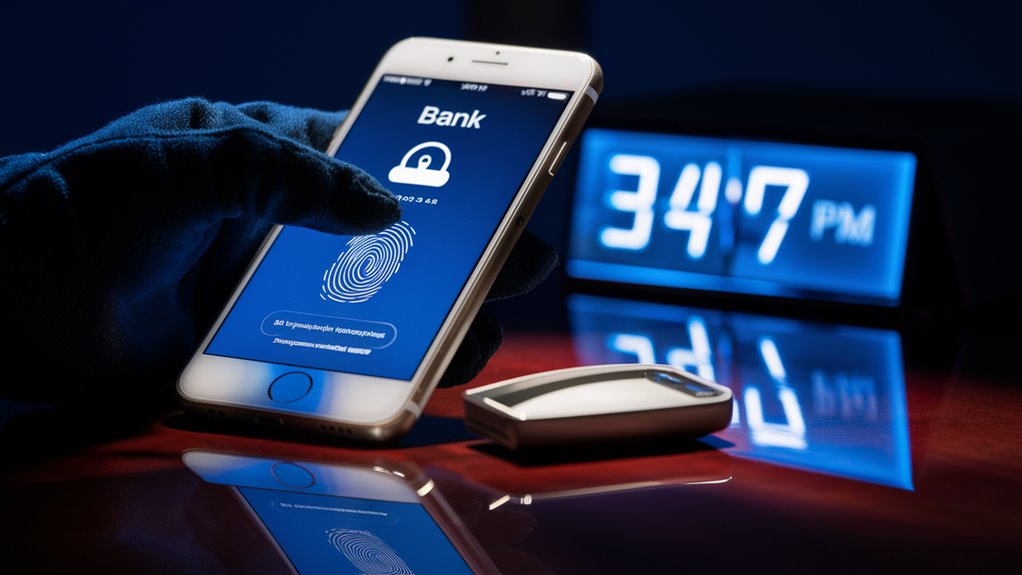
Let’s talk about how banks keep your money safe when you’re making online gambling transactions. You know how banking has changed over the years, right? Well, these days it’s all about layers of security to protect your hard-earned cash.
Think of bank transfer authentication like a digital fortress. When you’re ready to move money, you’ll need more than just a password. Most banks now use what’s called two-factor authentication, or 2FA for short. It’s pretty straightforward, really. First, you put in your password, then the bank sends a quick code to your phone to double-check it’s actually you.
But wait, there’s more to it. Have you noticed that little extra step when making online payments? That’s probably 3D Secure technology at work. Your bank might ask you to hop into their app or use a special security device to confirm it’s really you making the transaction. It’s like having a bouncer who knows you personally checking your ID at the door.
The really clever part is something called Strong Customer Authentication (SCA). Banks typically want you to prove who you are in at least two different ways. This could be something you know, like a PIN, something you have, like your phone, or something unique to you, like your fingerprint. It’s kind of like needing both a key and an alarm code to get into your house.
Want to make sure your bank’s got all the security bells and whistles? Look for things like end-to-end encryption and SSL certificates. Many banks even offer virtual card numbers now, which is super handy for online gambling. Just remember to check for that little padlock symbol in your browser before typing in any bank details. Think of it as your security guard giving you the all-clear signal.
Prepaid Card Payment Options
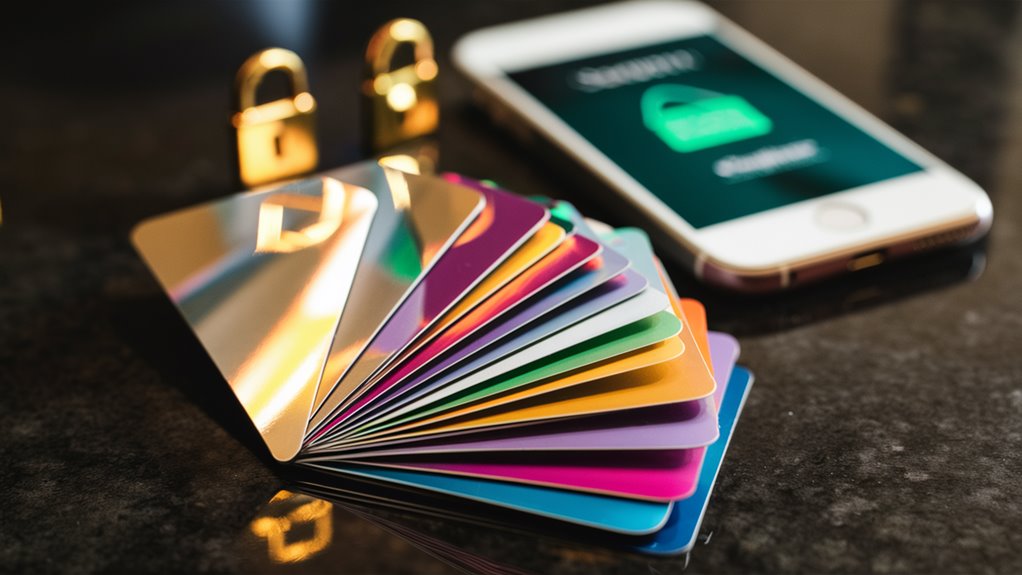
Let’s talk about prepaid cards for online gambling. You know how it can be a bit nerve-wracking to use your regular bank card for betting? That’s where prepaid cards come in handy. They’re basically like having a separate wallet just for gambling, with a built-in spending limit to keep you on track.
There are quite a few options out there, and it’s pretty straightforward to get started. You can pick up virtual prepaid cards if you’re all about that digital life, or grab retail gift cards from your local store. If you want something more flexible, reloadable prepaid debit cards might be your best bet.
Getting your hands on a prepaid card is super simple. Just head to an authorized retailer or check out financial institutions that offer them. Popular choices include Paysafecard, which lots of gambling sites accept, or Play+ cards.
You can also go for regular prepaid cards from Visa or Mastercard. The cool thing is you decide upfront how much to load, so there’s no chance of overspending.
Before you jump in, though, take a quick look at what cards your favorite gambling site accepts. Watch out for those sneaky fees too, like activation costs or reload charges. Some cards might hit you with foreign transaction fees, and there’s usually a daily limit on how much you can spend.
Here’s something important to remember: while most sites let you deposit with prepaid cards, you might need another way to get your winnings out, like a bank transfer or e-wallet. It’s worth checking these details beforehand to avoid any hassles later.
Common Payment Security Threats
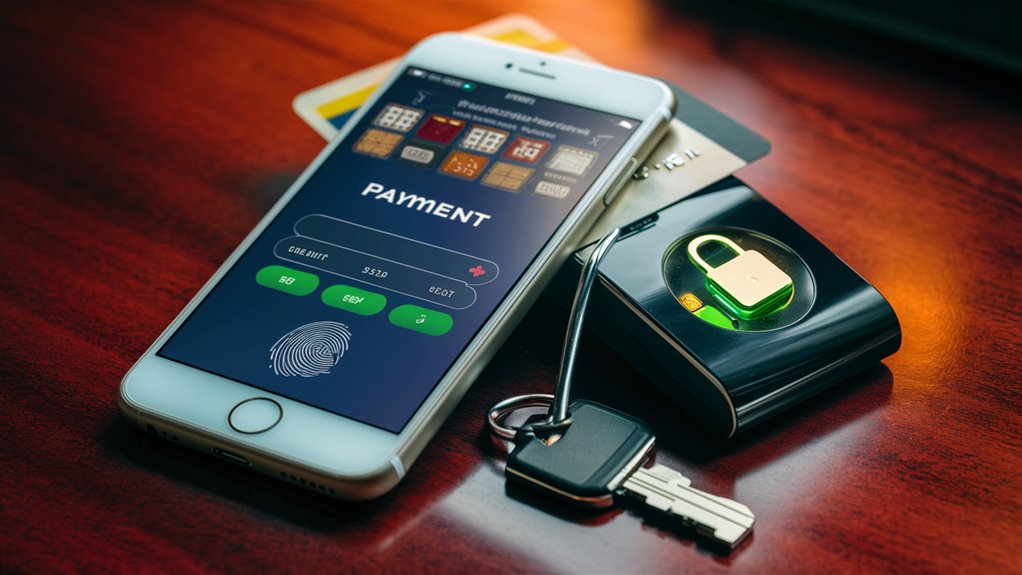
Let’s talk about something really important – keeping your online payments safe when you’re gambling. You know how cyber threats seem to be everywhere these days? Well, the gambling world isn’t immune to them either.
Think of phishing scams as digital wolves in sheep’s clothing. They’ll pop up looking just like your favorite gambling site, complete with a login page that seems legitimate. Before you know it, they’ve snagged your financial details through a fake email or website. Pretty sneaky, right?
Malware is another headache you’ll want to avoid. It’s like having an invisible spy on your device, watching every move you make when you enter payment information.
And then there’s the man-in-the-middle attack – picture someone secretly intercepting your conversation with the gambling site, grabbing your sensitive data mid-transfer.
Identity theft can happen when you least expect it. Maybe you’re logging in through that coffee shop’s WiFi, or perhaps your trusted gambling site just had a security breach. Some crafty fraudsters even build entire fake gambling websites that look just like the real deal – talk about going the extra mile to trick people!
Watch your credit card statements like a hawk. Unauthorized charges can sneak in after using your card on compromised sites.
And don’t get me started on keyloggers – these nasty little programs record everything you type, from passwords to payment details. Meanwhile, SQL injection attacks can break into a gambling site’s vault of stored payment information.
So what can you do? First off, always double-check a site’s security certificates. Think of them as a digital ID card.
And stick to payment methods you trust – you wouldn’t hand your wallet to a stranger, so why trust your payment details to an unsecured site?
Encryption Technology For Secure Transactions
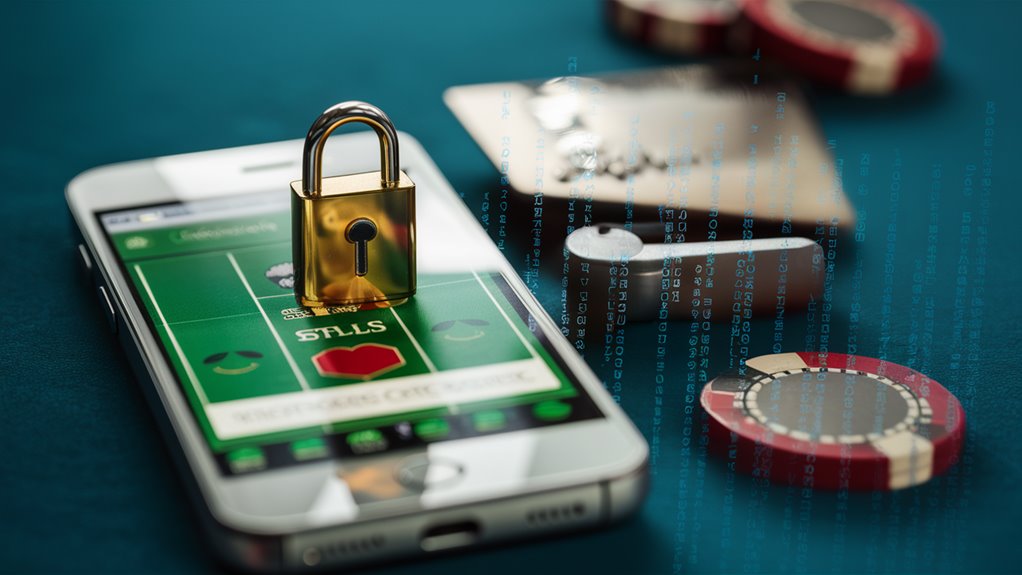
Let’s talk about keeping your money safe when gambling online – it’s actually simpler than you might think. Think of encryption technology as a super-reliable security guard for your digital wallet. You know how you wouldn’t want strangers peeking at your credit card while shopping? Well, encryption works by scrambling your payment details into complex codes that only the right people can understand.
Want to know if a gambling site is secure? Just look for that little padlock symbol in your browser’s address bar, along with “https://” at the start of the web address. These tell you the site uses SSL or TLS encryption, which are fancy terms for really solid security measures. It’s like having a high-tech safe for your financial information.
Now, here’s something cool about modern payment methods. When you use popular e-wallets or payment services, they add an extra layer of protection called end-to-end encryption. Picture it as your payment traveling in an armored car from start to finish.
Plus, there’s this neat trick called tokenization, where your actual card numbers get swapped out for special codes, kind of like using a secret password instead of your real name.
Before you start placing bets, though, take a quick moment to check the site’s security credentials. It’s pretty straightforward – just make sure their encryption certificate comes from a trusted name like Norton, DigiCert, or Comodo.
Think of these certificates as a seal of approval from security experts, confirming you’re dealing with a legitimate gambling platform.
Payment Verification Requirements
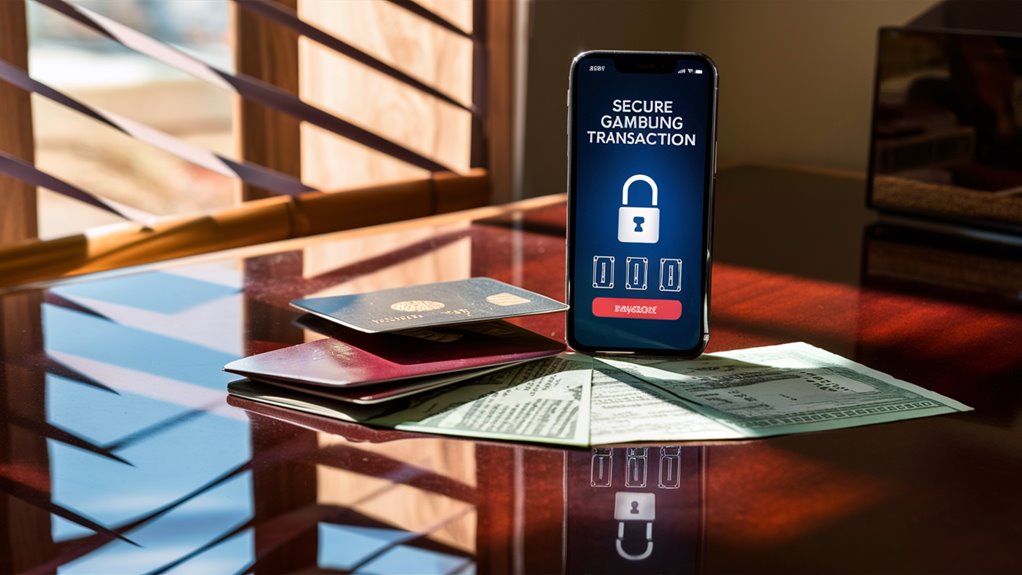
Let’s talk about payment verification on gambling sites. You know how it goes – before you can start playing or cash out your winnings, there’s some paperwork to handle. But don’t worry, it’s actually pretty straightforward.
Think of it like opening a bank account. The casino needs to make sure you’re really you, and your money is actually yours. Makes sense, right? They’ll ask for a few key documents to keep everything safe and legitimate.
First up, you’ll need some official ID. This could be your driver’s license or passport – whatever works best for you. Then there’s the whole “proving where you live” thing, which usually means digging up a recent utility bill or bank statement. If you’re using a credit card, they might ask for some photos of it (but don’t worry, you can hide most of the numbers for security).
Here’s where it gets a bit technical: there’s something called a KYC check, which basically means “Know Your Customer.” It’s the casino’s way of checking that you’re old enough to gamble and aren’t using someone else’s payment info. Pretty important stuff, when you think about it.
Whether you’re planning to use a credit card, e-wallet, or good old-fashioned bank transfer, you’ll need to prove it’s actually yours. Some sites might even send you a quick text message to verify your phone number – just an extra layer of security.
Sure, jumping through all these hoops might seem like a hassle at first. But look at it this way: would you really want to trust your money with a site that doesn’t care who’s using it?
These checks are actually there to protect both you and your cash from any funny business.
Choosing Safe Digital Payment Providers
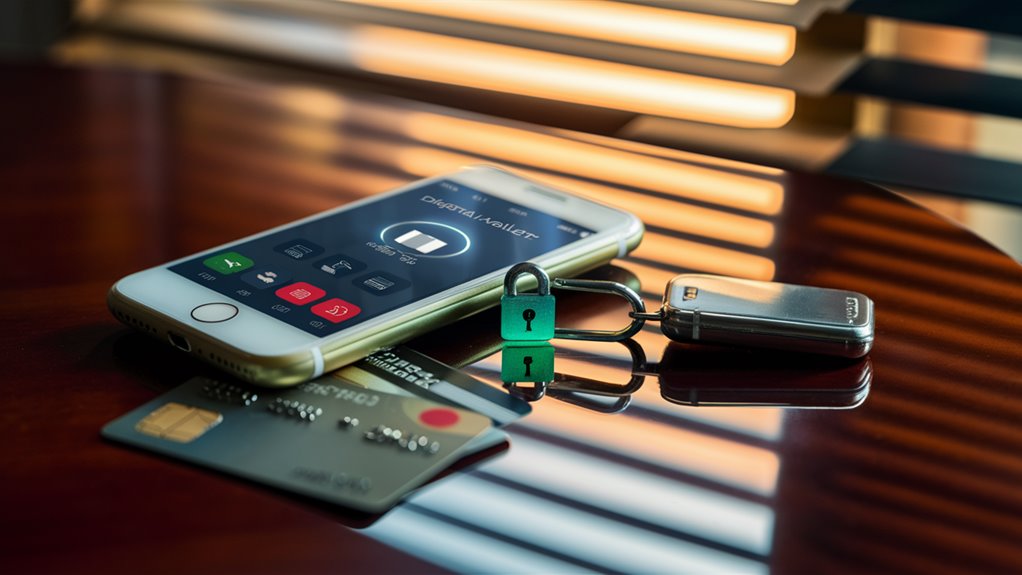
Let’s talk about choosing digital payment providers for a moment. You know how important it feels to keep your money safe online, right? Well, picking the right payment service is a lot like choosing a bank – you want someone reliable, secure, and well-established.
First things first, take a good look at how these providers protect your money. The best ones use top-notch encryption (think bank-level security) and add an extra layer of protection with two-factor authentication. It’s like having both a lock and an alarm system on your front door.
When it comes to reputation, stick with the tried-and-true names in the industry. PayPal, Skrill, and Neteller have been around the block a few times and really know their stuff. Check out what other users are saying about them, and see which gambling sites they work with. A provider with solid partnerships is usually a safe bet.
Some payment services go the extra mile for gamblers, offering special wallets and dedicated support teams who understand gaming transactions inside and out. This can be super helpful when you need quick answers about your funds.
Before you jump in, though, take a minute to read through their policies on disputes and refunds. You’ll want to know exactly what happens if something goes wrong, like an unauthorized charge popping up on your account.
And don’t forget the practical stuff – transaction limits, how long transfers take, and those pesky fees that can add up.
One last thing: make sure your chosen provider is actually allowed to operate where you live. Different places have different rules about gambling payments, so double-check that everything’s above board in your area.
Common Questions
What Happens if My Payment Is Delayed During a Time-Sensitive Sports Bet?
Let’s get real about what happens when your payment hits a snag during sports betting. You know how time-sensitive these bets can be, right? Well, here’s the deal: if your payment doesn’t clear before kickoff or the first pitch, you’ll unfortunately miss out on placing that bet.
Think of it like trying to buy concert tickets after the show’s already started – it just doesn’t work that way. The moment that game clock starts ticking, betting windows close, regardless of whether your payment was just seconds away from processing.
The best move? Don’t wait until the last minute, and if you do run into payment issues, reach out to customer support right away. They’re usually pretty good at helping sort things out, though they can’t bend the rules about game start times. Some betting platforms even have emergency payment options or alternative methods you might be able to use, but you’ll need to act fast.
Can I Use Multiple Payment Methods for a Single Gambling Account?
Let’s talk about using multiple payment methods for your gambling account. You know how it’s convenient to have different ways to manage your money, right? Well, most online gambling platforms understand this and typically allow you to link several payment options to your account.
Think of it like having different cards in your physical wallet. Sometimes you might want to use your credit card, other times your debit card or an e-wallet might be more convenient. The same flexibility applies to your online gambling account.
But here’s something important to keep in mind: all payment methods you add need to be registered under your name. This isn’t just a random rule, it’s actually for your own security and helps prevent fraud. Each platform has its own specific limits and requirements, so it’s worth checking their guidelines before setting up your payment methods.
Just like how you probably wouldn’t let someone else use your credit card, gambling sites take the same cautious approach. So, while you can definitely have multiple payment options, they all need to be yours. Quick tip: before you start adding payment methods, take a moment to review your chosen platform’s terms and conditions to understand any limitations they might have.
Do Gambling Sites Charge Different Fees for Different Payment Methods?
You know how different stores charge different fees when you use various payment methods? Well, gambling sites work pretty much the same way. Let me break it down for you.
When you’re ready to deposit money into your gambling account, you’ll notice that fees can vary quite a bit depending on how you choose to pay. E-wallets like PayPal or Skrill might seem super convenient, but they often come with slightly higher fees. It’s kind of like paying a bit extra for convenience at a corner store versus a supermarket.
Bank transfers and credit cards usually offer better deals when it comes to fees. Think of it as the reward for taking the traditional route. Some sites might even waive fees completely for these payment methods, especially if you’re making larger deposits.
Just keep in mind that the exact fees can change from site to site, so it’s worth checking the payment section before you commit. Some gambling platforms are really upfront about their fees, while others might tuck this information away in their terms and conditions. A quick look at the cashier page or a chat with customer support can save you from any unwanted surprises.
Are Payment Methods the Same for Mobile Gambling Apps and Websites?
Let’s talk about payment methods when it comes to gambling on your phone or computer. You know how most things these days work pretty much the same whether you’re on mobile or desktop? Well, it’s slightly different with gambling payments.
While you’ll generally find the same main payment options across both platforms, mobile apps sometimes come with a few limitations. This isn’t really about the gambling sites themselves, but more about what Apple’s App Store or Google Play will allow. Think of it like shopping at a regular store versus a smaller convenience store – the basics are there, but you might have fewer choices at the smaller place.
For instance, your favorite credit card might work perfectly on the website, but when you try to use it on the app, you could run into some restrictions depending on where you live. It’s worth checking both versions before you commit to one or the other, just to make sure you can use your preferred payment method without any hassle.
How Long Does It Typically Take to Withdraw Winnings From Online Casinos?
Ever wondered how long it takes to get your hands on those casino winnings? Well, the waiting game really depends on which payment method you choose.
Let’s break it down: if you’re using e-wallets like PayPal or Skrill, you’re in luck. These are usually the quickest options, with most withdrawals landing in your account within 24 to 48 hours. Pretty quick, right?
Bank transfers tend to move at a more leisurely pace. You might find yourself waiting up to 7 business days before seeing that money hit your account. It’s not ideal if you’re eager to access your winnings, but that’s just how traditional banking systems work.
The good news is that most online casinos process withdrawal requests within a day or two on their end. After that, it’s really up to your chosen payment method. Think of it like ordering something online – the store might package your item quickly, but shipping times can vary quite a bit.
You know what’s helpful? Checking your casino’s payment policy before you start playing. That way, you can pick the withdrawal method that best suits your timing needs and avoid any frustrating surprises when it’s time to cash out.